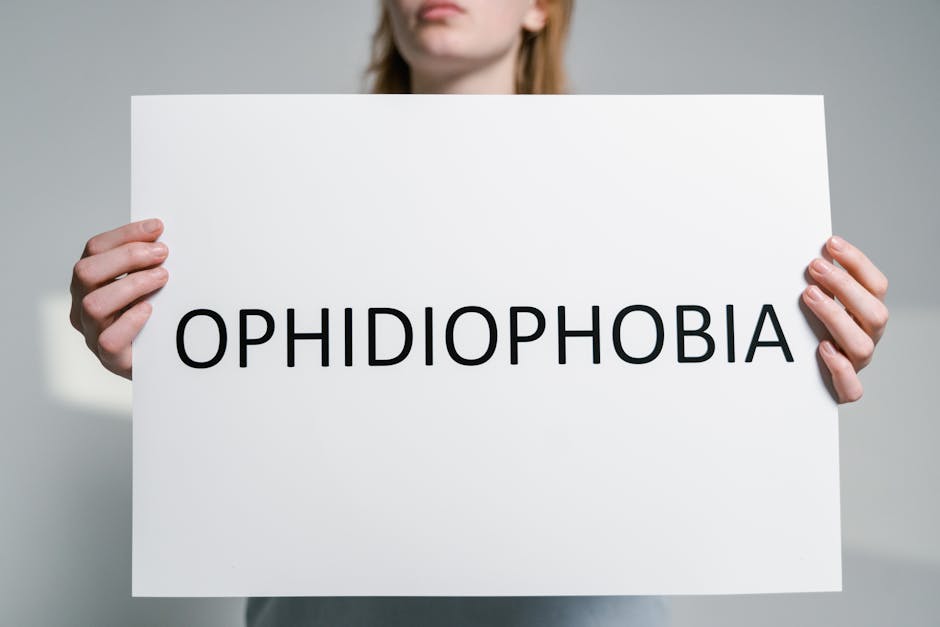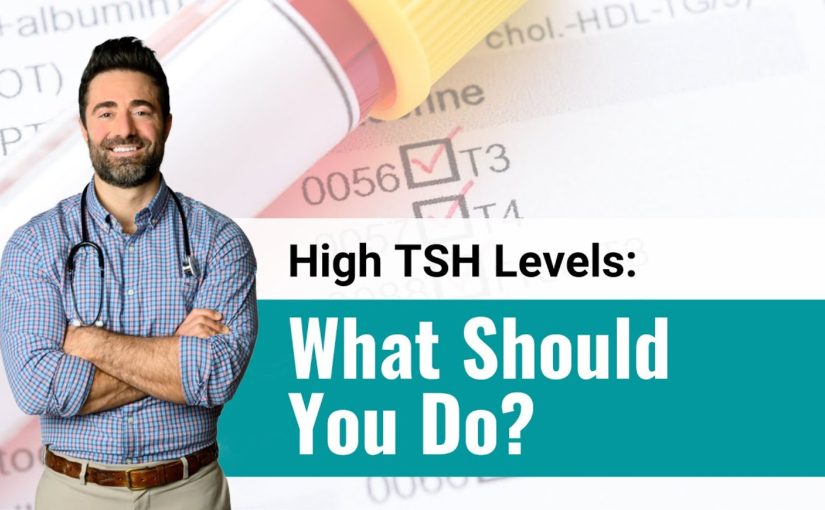Hey there, this is Dr. Ruscio. I just want to share a quick update regarding
the thyroid TSH and why you should be careful in terms of what you are told you
should do about an elevation of your TSH. You’ve hopefully heard some of my criticisms
of the field of functional, natural, and integrative medicine regarding how overzealously, we’re
interpreting small perturbations and findings on thyroid labs. This certainly includes people I work with
in the clinic. I just had a patient this morning
and she had previously a TSH of 6.3. So the cutoff on most labs is 4.5. So she was according to the conventional lab
ranges, slightly elevated. This is known as subclinical hypothyroid. When that minimum elevation of TSH is paired
with normal T4, this is known as subclinical hypothyroid, meaning you’re not a true hypothyroid. This is so crucially important because
the data here are fairly clear in showing that most of these cases will spontaneously
remit or will spontaneously, all on their own with no treatment or therapeutics or support,
go back to normal. Now, what was so interesting here is that
while working with me, she was also doing some local testing with her NP, her nurse
practitioner. I advised her not to be too quick to act on
this 6.3, this elevated TSH paired with normal T4 and also normal T3. Let’s retest in a month or two, especially
given the fact that she has been improving symptomatically. As the data suggests, you will likely see
normality or normalization of your TSH. So what do you know, about two months later? Her TSH has now gone into the normal range
of 3.6, from 6.3, and T4 and T3 are still normal. All the while she has continued to improve
symptomatically. To contrast this with what I think
needs to be amended in the field, her NP wanted to put her on thyroid hormone at that initial
visit with the elevated TSH. What a travesty that would have been, because
once you put someone on thyroid hormone, the repeat testing doesn’t tell you if they no
longer need the hormone, because all of the levels have been paved over by the hormone
that the person is now taking orally.

So this is a crucially important situation
where we don’t want to be too quick to act to put people on thyroid hormone without giving
adequate time to see if, especially at these subclinical findings, again – high TSH, normal
T4 according to the conventional ranges – normalizes all on its own at your next retest. The trajectory of these two different patient
scenarios is so different. The one patient from the more, what I would
argue, the overzealous camp will be put on thyroid hormone in some cases for years until a provider
has enough common sense to go back and check this. Or, as in this case with a more reserved and
kind of circumspect approach, no medicine was started and a retest a couple of months later
found she was back into the normal range. We stopped her from going on a medication
ostensibly for years that she would not have needed. If you’re concerned about this, double check
and get a second opinion to make sure that you’re A) not on thyroid hormone that you
don’t need to be or B) that perhaps you are given thyroid hormone too quickly, based upon
this lab work, that didn’t justify that approach. Now, according to the philosophy of some providers,
subclinical hypothyroidism does justify the use of medication. Although the data here are clear that there
is almost no benefit shown when those who have that pattern of high TSH and normal T4
go on thyroid hormone. Almost no benefit has been documented unless
you’re very young, you are pregnant or are struggling with infertility, or your TSH is
well above 10. These are important nuances to understand
in navigating the conversation around thyroid, which is all too often vilified or positioned
as a cause of all symptoms. It may well be, but we don’t want to force
upon someone thyroid hormone when the labs don’t justify that because that can
lead someone to be on medication they don’t need. This also distracts from actually determining
what underlying cause is leading to the symptoms that you’re having. So again, I would encourage you to double-check. Don’t stop taking the medication until you
check with your provider, but if you’re suspicious that your provider is being a bit overzealous,
double-check. It may be well worth it. Okay. That is our show. Hopefully, this helps.
As found on YouTubeExplaindio Agency Edition FREE Training How to Create Explainer Videos & SELL or RENT them! Join this FREE webinar | Work Less & Earn More With
Explaindio AGENCY EDITION
 So this is a crucially important situation
where we don’t want to be too quick to act to put people on thyroid hormone without giving
adequate time to see if, especially at these subclinical findings, again – high TSH, normal
T4 according to the conventional ranges – normalizes all on its own at your next retest. The trajectory of these two different patient
scenarios is so different. The one patient from the more, what I would
argue, the overzealous camp will be put on thyroid hormone in some cases for years until a provider
has enough common sense to go back and check this. Or, as in this case with a more reserved and
kind of circumspect approach, no medicine was started and a retest a couple of months later
found she was back into the normal range. We stopped her from going on a medication
ostensibly for years that she would not have needed. If you’re concerned about this, double check
and get a second opinion to make sure that you’re A) not on thyroid hormone that you
don’t need to be or B) that perhaps you are given thyroid hormone too quickly, based upon
this lab work, that didn’t justify that approach. Now, according to the philosophy of some providers,
subclinical hypothyroidism does justify the use of medication. Although the data here are clear that there
is almost no benefit shown when those who have that pattern of high TSH and normal T4
go on thyroid hormone. Almost no benefit has been documented unless
you’re very young, you are pregnant or are struggling with infertility, or your TSH is
well above 10. These are important nuances to understand
in navigating the conversation around thyroid, which is all too often vilified or positioned
as a cause of all symptoms. It may well be, but we don’t want to force
upon someone thyroid hormone when the labs don’t justify that because that can
lead someone to be on medication they don’t need. This also distracts from actually determining
what underlying cause is leading to the symptoms that you’re having. So again, I would encourage you to double-check. Don’t stop taking the medication until you
check with your provider, but if you’re suspicious that your provider is being a bit overzealous,
double-check. It may be well worth it. Okay. That is our show. Hopefully, this helps.As found on YouTubeExplaindio Agency Edition FREE Training How to Create Explainer Videos & SELL or RENT them! Join this FREE webinar | Work Less & Earn More With Explaindio AGENCY EDITION
So this is a crucially important situation
where we don’t want to be too quick to act to put people on thyroid hormone without giving
adequate time to see if, especially at these subclinical findings, again – high TSH, normal
T4 according to the conventional ranges – normalizes all on its own at your next retest. The trajectory of these two different patient
scenarios is so different. The one patient from the more, what I would
argue, the overzealous camp will be put on thyroid hormone in some cases for years until a provider
has enough common sense to go back and check this. Or, as in this case with a more reserved and
kind of circumspect approach, no medicine was started and a retest a couple of months later
found she was back into the normal range. We stopped her from going on a medication
ostensibly for years that she would not have needed. If you’re concerned about this, double check
and get a second opinion to make sure that you’re A) not on thyroid hormone that you
don’t need to be or B) that perhaps you are given thyroid hormone too quickly, based upon
this lab work, that didn’t justify that approach. Now, according to the philosophy of some providers,
subclinical hypothyroidism does justify the use of medication. Although the data here are clear that there
is almost no benefit shown when those who have that pattern of high TSH and normal T4
go on thyroid hormone. Almost no benefit has been documented unless
you’re very young, you are pregnant or are struggling with infertility, or your TSH is
well above 10. These are important nuances to understand
in navigating the conversation around thyroid, which is all too often vilified or positioned
as a cause of all symptoms. It may well be, but we don’t want to force
upon someone thyroid hormone when the labs don’t justify that because that can
lead someone to be on medication they don’t need. This also distracts from actually determining
what underlying cause is leading to the symptoms that you’re having. So again, I would encourage you to double-check. Don’t stop taking the medication until you
check with your provider, but if you’re suspicious that your provider is being a bit overzealous,
double-check. It may be well worth it. Okay. That is our show. Hopefully, this helps.As found on YouTubeExplaindio Agency Edition FREE Training How to Create Explainer Videos & SELL or RENT them! Join this FREE webinar | Work Less & Earn More With Explaindio AGENCY EDITION



